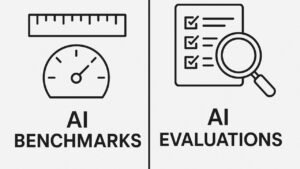
Your AI Agent is Lying - Part 2 - benchmark evidence
The Reality Gap in AI Agent Testing
When you test an AI agent with just one question at a time, you’re not seeing the full picture. Think about it—when was the last time you had a meaningful conversation that lasted exactly one exchange? Most real interactions unfold over multiple turns, with context building, preferences emerging, and goals shifting throughout the conversation.
The problem with single-turn testing is that it misses the nuanced challenges of sustained dialogue. It’s like judging a chef’s skill based on one dish instead of watching them handle a full dinner service with multiple courses, dietary restrictions, and timing constraints.
What Multi-Turn Benchmarks Actually Test
Multi-turn benchmarks simulate realistic conversational scenarios to evaluate several critical capabilities that single-turn tests completely miss:
Context Coherence and Flow: Can the agent maintain logical conversation threads without suddenly forgetting what you were discussing? Real conversations have natural ebbs and flows, topic transitions, and references to earlier points.
Memory and Information Retention: Does the agent remember your preferences, previous statements, or important details from earlier in the conversation? This isn’t just about storing data—it’s about using that information meaningfully in later responses.
Handling Complex, Evolving Tasks: Many real-world scenarios require multiple steps, clarifications, and adjustments. Booking travel, troubleshooting technical issues, or planning projects all involve iterative problem-solving that unfolds over several exchanges.
Consistency Over Time: Can the agent maintain its persona, tone, and accuracy across multiple turns without contradicting itself or losing coherence?
Error Recovery and Adaptation: When small mistakes happen early in a conversation, can the agent recognize and correct them, or do errors compound into bigger problems?
The Benchmarking Landscape
Recent research has introduced sophisticated multi-turn evaluation frameworks that address these challenges. Here are a few examples of multi-turn benchmarks and the results for top models.

The results are eye-opening. Even advanced models achieve only 50% accuracy on these realistic multi-turn challenges, despite scoring nearly perfectly on traditional single-turn benchmarks.
Beyond Academic Testing
Modern benchmarks incorporate practical evaluation methods that combine automated scoring with human judgment. They simulate real user behaviors, test agents across diverse scenarios, and use specialized language models as evaluators to assess performance at scale.
The evaluation process typically involves:
- Conversation simulation between the agent and simulated users
- Performance tracking across multiple metrics like goal completion and helpfulness
- Error analysis to identify where conversations break down
- Adaptive testing that adjusts scenarios based on agent responses
Why This Matters for Deployment
Multi-turn benchmarks aren’t just academic exercises—they’re essential for understanding whether an AI agent can handle real-world deployment. Organizations that skip comprehensive multi-turn evaluation often discover critical issues only after users start having extended conversations with their agents.
The stakes are particularly high for business applications where agents need to maintain context across complex workflows, remember customer preferences, and handle multi-step processes without losing track of the overall objective.
The Path Forward
As AI agents become more sophisticated, evaluation methods must evolve accordingly. The future of agent evaluation lies in comprehensive frameworks that test not just individual responses but entire conversational capabilities—including adaptability, memory, consistency, and the ability to handle the messy, unpredictable nature of real human interaction.
Without rigorous multi-turn evaluation, we risk deploying agents that perform well in controlled tests but fail when faced with the complexity of actual conversations. The benchmark isn’t just about measuring current capabilities—it’s about building the foundation for truly reliable AI agents that can thrive in the real world.
How are you evaluating your AI agents today? What Benchmarks / Evaluations are you using? What are your experiences with AI agents? Please share, Email us at Lakshmi.sk@arkisol.com


